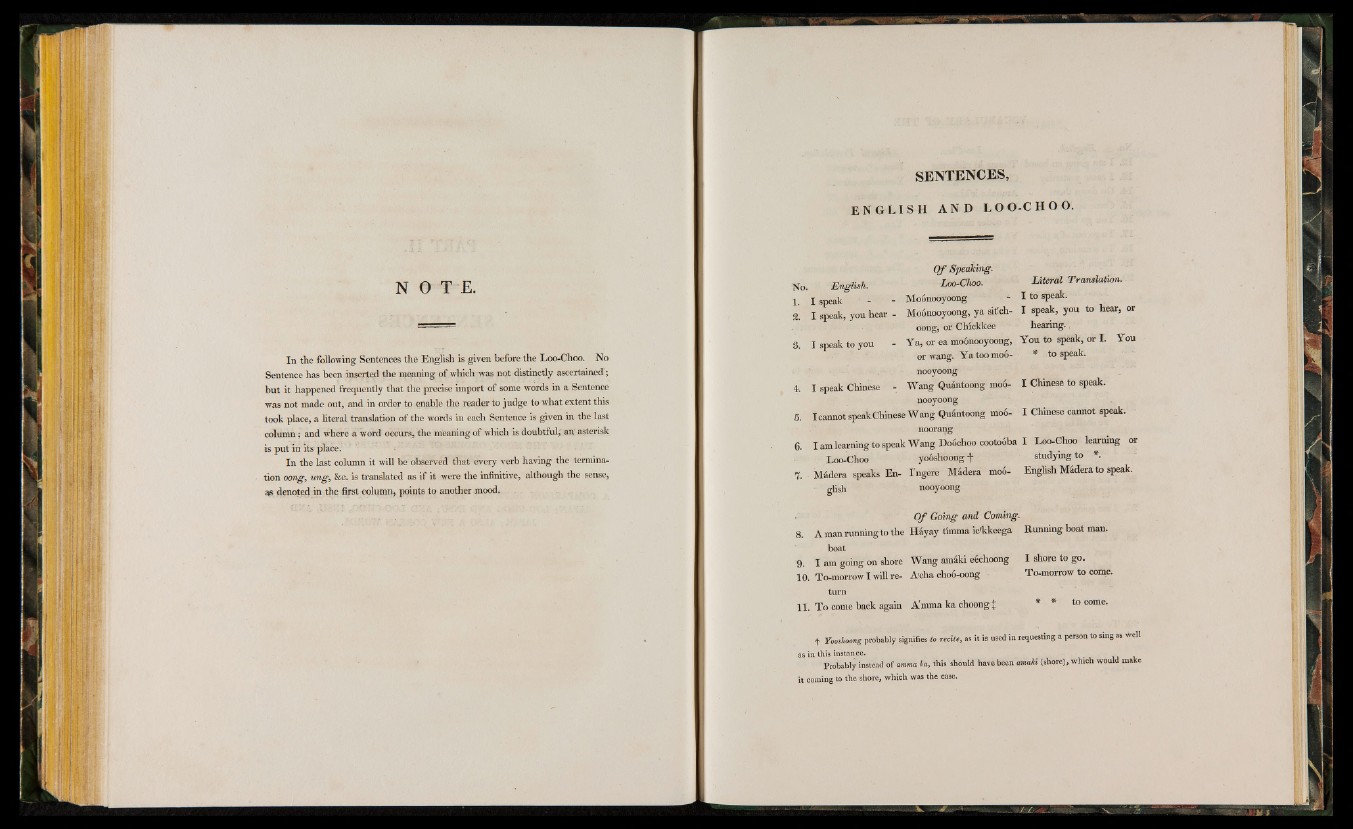
In the following Sentences the English is given before the Loo-Choo. No
Sentence has been inserted the meaning of which was not distinctly ascertained;
but it happened frequently that the precise import of some words in a Sentence
was not made out, and in order to enable the reader to judge to what extent this
took place, a literal translation of the words in each Sentence is given in the last
column; and where a word occurs, the meaning of which is doubtful,' an asterisk
is put in its place; '
In the last column it will be observed that every verb having the termination
oong, u n g i &c. is translated as if it were the infinitive, although the sense,
as denoted in the first column, points to another mood.
SENTENCES,
ENGL I SH AND LOO-CHOO.
No. English.
1. I speak - -
2. I speak, you hear -
3. I speak to you
4. I speak Chinese
7. Madera speaks English
8. A man running to the
boat
9. I am going on shore
10. To-morrow I will return
11. To come back again
O f Speaking.
Loo-Choo.
Moonooyoong -
Moonooyoong, ya sifch-
oong, or Chickkee
Ya, or ea mobnooyoong,
nooyoong
O f Going and Coming.
H&yay timma ic'kkeega
Wang am&ki ebchoong
A'cha cho6-oong
A'mma ka choong +
Literal Translation—
I to speak.
I speak, you to hear, or
hearing.
You to speak, or I. You
* to speak.
I Chinese to speak.
I Chinese cannot speak.
I Loo-Choo learning or
studying to *.
English M&dera to speak.
Running boat man.
I shore to go.
To-morrow to come.
* * to come.
or wang. Ya too mobnooyoong
Wang Quantoong mobnooyoong
5. I cannot speakChinese Wang Quintoong mo6-
noorang
6. I am learning to speak Wang Doochoo cooto6ba
Loo-Choo yo&shoongf
I'ngere Madera mo6-
f Yooshoong probably signifies to recite, as it is used in requesting a person to sing as "’ell
as in this instance. . . . . ,, ,
Probably instead of amma ka, this should have been amali (shore), which would make
it coming to the shore, which was the case.